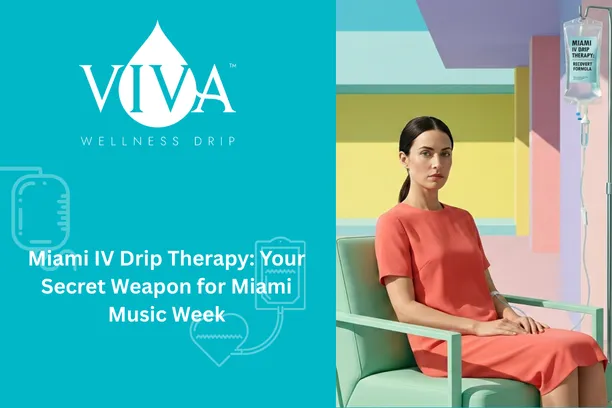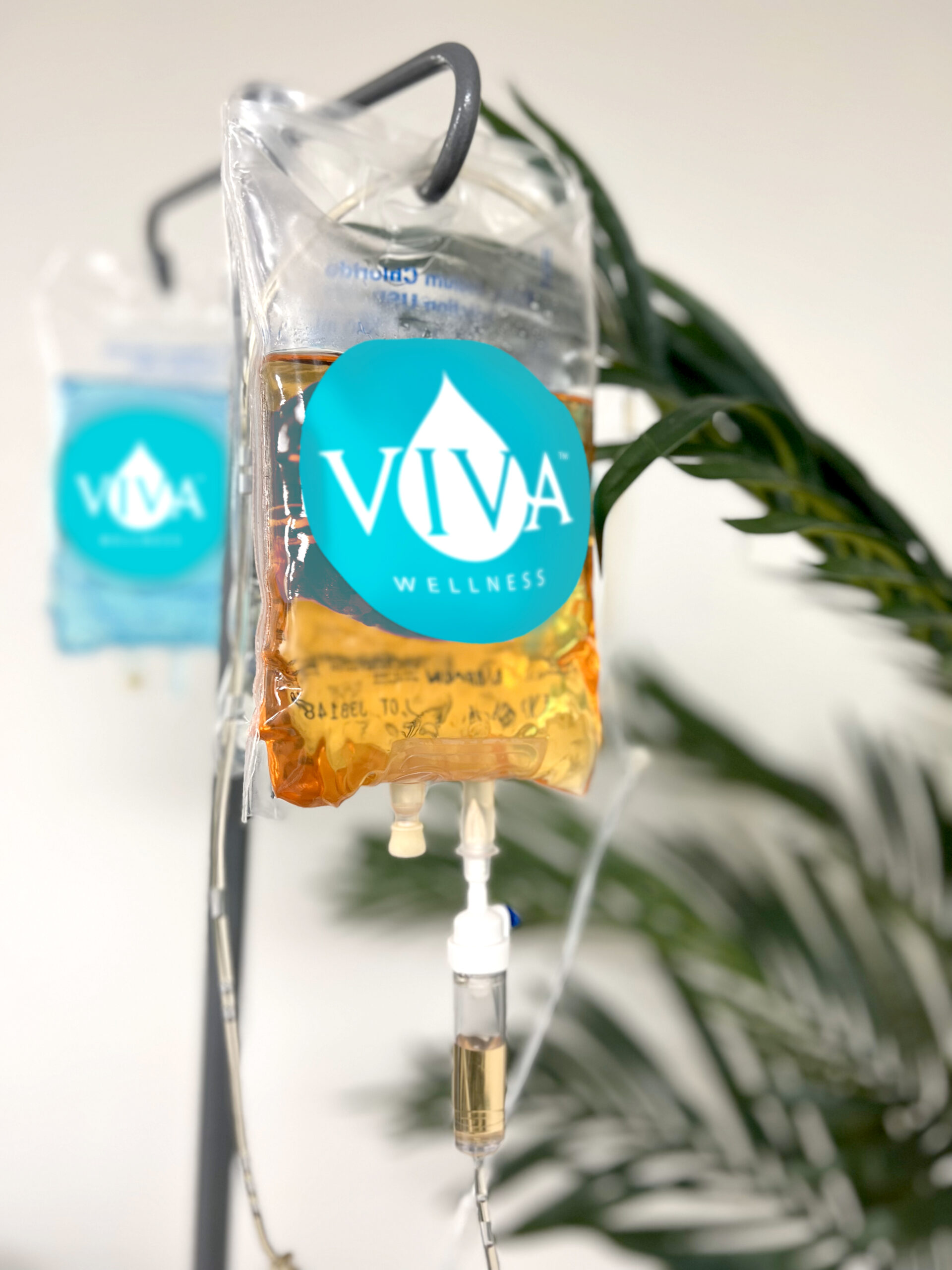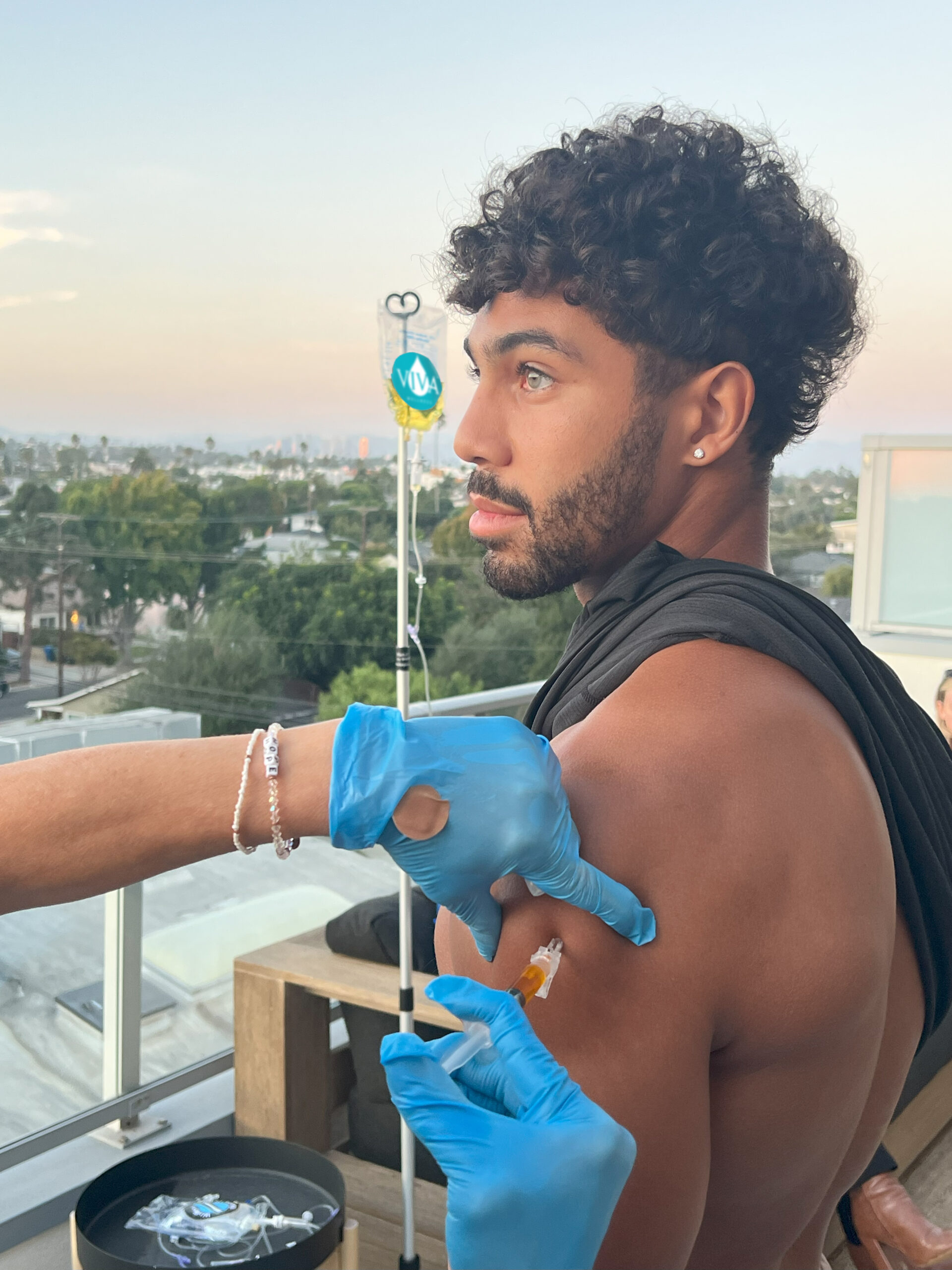Feeling tired or run-down, you might wonder if IV Therapy or oral vitamins work better to boost your health. Research shows that IV absorption rates can be much higher than what we get from swallowing pills. This blog post will compare both options and outline which situations make one more effective than the other. See which option could fit your needs best!
Key Takeaways
- IV therapy delivers vitamins and minerals straight into the bloodstream, leading to almost 100% absorption rates. In comparison, oral supplements have absorption rates between 10%-80% due to digestion (Mayo Clinic).
- People with digestive problems, like Crohn’s or celiac disease, absorb nutrients better with IV therapy than pills.
- Oral supplements are more affordable and widely available in stores or online. IV therapy costs $100–$300 per session and often requires a clinic visit.
- Athletes, people with chronic illnesses, or those needing rapid recovery may benefit most from IV therapy. Healthy people can usually meet their needs using oral supplements if they have no trouble absorbing nutrients.
- Doctors recommend consulting healthcare professionals before choosing since individual health needs and goals affect which method works best.
Brief overview of IV therapy and oral supplements

IV therapy delivers vitamins, minerals, or fluids directly into the bloodstream using an IV drip. This process allows for quick absorption and higher bioavailability compared to oral supplements.
Doctors often use IV therapy in hospitals for people who cannot absorb nutrients well or who need fast results.
Oral vitamins and supplements are usually pills, capsules, powders, or liquids that you swallow. The body must digest these first before absorbing their nutrients through the gut. According to experts at Mayo Clinic, “Nutrient absorption from oral supplements can range from 10% to 80%, while IV absorption rates reach nearly 100%.” Some people prefer supplement alternatives like gummies or chews for convenience but may not get as much benefit as with an IV drip comparison.
Nutrients delivered by vein usually bypass the digestive system entirely.
Importance of understanding the differences in effectiveness for health and wellness
People experience different results from oral vitamins vs IV therapy. Some nutrients absorb faster and more completely through an IV, while others reach the body just fine with pills or gummies.
Digestive health may affect how well oral supplements work, while IV therapy goes directly into the bloodstream.
Many factors influence supplement effectiveness for each person’s needs. For example, someone with digestive issues might benefit more from IV therapy effectiveness than oral options.
Cost, convenience, and individual goals all play a part in choosing between these methods of getting key nutrients.
Understanding IV Therapy
IV therapy delivers nutrients directly into your bloodstream, so keep reading to discover how this process could impact your health.
Definition and explanation of IV therapy
IV therapy delivers nutrients directly into the bloodstream through a vein. This process allows for quick absorption of vitamins, minerals, and hydration. Healthcare professionals often use IV therapy to treat dehydration, nutrient deficiencies, or certain medical conditions.
Common types of IV treatments include vitamin infusions and hydration therapies. Many people can benefit from this method. Athletes may seek it for recovery while those with chronic health issues might need it for better nutrient intake.
Each treatment is customized to meet individual health needs.
“IV therapy provides rapid relief by bypassing the digestive system.”
Common types of IV treatments and their uses
IV therapy includes various treatments customized to specific health needs. Hydration therapy rehydrates the body quickly and helps restore fluid balance. Vitamin infusions deliver essential nutrients directly into the bloodstream, promoting general wellness.
Some people use immune-boosting IVs during cold and flu seasons. Many also benefit from nutrient-rich blends for energy or recovery after workouts. Others choose detox IVs aimed at flushing out toxins and enhancing vitality.
Each type serves a different purpose based on individual health goals.
Who can benefit from IV therapy?
IV therapy can greatly benefit individuals with certain health conditions. People who suffer from chronic illnesses, dehydration, or nutrient deficiencies often gain significant advantages from this treatment.
Athletes seeking rapid recovery after intense training may also find IV therapy useful. Those unable to absorb nutrients effectively through their digestive systems might turn to this method for better results.
Patients recovering from surgery or illness can speed up healing with IV treatments. Busy professionals looking for a quick energy boost often choose this option too. Anyone wanting immediate hydration and nutrient delivery can see positive outcomes with IV therapy.
Understanding Oral Supplements
Oral supplements provide essential nutrients in pill or liquid form. They include vitamins, minerals, and herbal remedies that support various health goals.
Definition and explanation of oral supplements
Oral supplements consist of vitamins, minerals, and herbal remedies taken by mouth. They come in various forms, such as tablets, capsules, powders, or liquids. These products provide essential nutrients that support overall health and wellness.
Many people use oral supplements to fill dietary gaps or boost their immune systems.
Supplements offer convenience for individuals looking to enhance their nutrition. Some may face absorption challenges due to digestive health issues. Understanding these factors helps you make informed choices about your health needs.
We will explore the pros and cons of oral supplements in detail.
Types of oral supplements (vitamins, minerals, herbal remedies)
Vitamins and minerals play vital roles in our health. They help with everything from boosting the immune system to supporting bone strength. You can find vitamins like A, C, D, E, and K in various forms such as capsules or gummies.
Minerals like calcium, magnesium, and iron also come in tablets or powders.
Herbal remedies offer natural alternatives for wellness. Popular options include echinacea for immunity and ginger for digestive health. Many people use these supplements to complement their diets.
Each type serves a purpose but varies in effectiveness based on individual needs and conditions.
Pros and cons of oral supplements.
Oral supplements offer several benefits. They are easy to use and widely available. People can take them in various forms, such as pills, powders, or gummies. Many oral supplements contain essential vitamins and minerals that support overall health.
Nonetheless, they also have downsides. Some nutrients can be poorly absorbed when taken orally due to digestive issues. Overconsumption of certain vitamins may result in unwanted side effects too.
Individual needs play a crucial role in choosing the right option for supplementation. Some people might find better results with IV therapy instead of oral options.
Comparative Effectiveness of IV Therapy and Oral Supplements
IV therapy delivers nutrients directly into the bloodstream, allowing for rapid absorption. Oral supplements work through digestion, which can slow down nutrient availability and effectiveness.
Absorption rates: How quickly and efficiently nutrients are absorbed.
Nutrients enter the body differently through IV therapy and oral supplements. IV therapy delivers nutrients directly into the bloodstream, allowing for quick absorption. This method bypasses the digestive system, leading to immediate benefits.
Studies show that IV treatments can provide nearly 100% absorption rates.
On the other hand, oral supplements go through digestion before entering the bloodstream. This process can slow down nutrient uptake. Factors like food intake and individual digestive health impact absorption rates significantly.
For some people, it may take hours for their bodies to fully absorb these nutrients from pills or capsules.
Bioavailability: Comparison of nutrient availability in the body from both methods.
Moving from absorption rates, bioavailability highlights how much of a nutrient actually reaches your system. IV therapy usually offers higher bioavailability than oral supplements.
This method delivers vitamins and minerals directly into the bloodstream, allowing for rapid uptake. Oral supplements must pass through the digestive system first. This journey can reduce their effectiveness because some nutrients lose potency before reaching circulation.
Certain health conditions can further affect bioavailability for both methods. For example, someone with digestive issues may struggle to absorb oral supplements efficiently. Meanwhile, IV therapy is often more effective for these individuals since it bypasses the gut altogether.
Understanding these differences helps you make informed choices about your health needs and goals.
Factors affecting effectiveness (e.g., individual health conditions, digestive health).
Individual health conditions play a crucial role in nutrient absorption. A person with digestive issues may struggle to absorb nutrients from oral supplements. Conditions like Crohn’s disease or celiac disease can limit this process.
IV therapy bypasses the digestive system, delivering nutrients directly into the bloodstream. This method often benefits those with significant absorption challenges.
Digestive health also impacts how well our bodies use these substances. A healthy gut allows for better nutrient breakdown and uptake from food and supplements. If someone has a poor diet or gut microbiome imbalance, it can hinder effectiveness.
Choosing between IV therapy and oral supplements may depend on personal health situations and specific needs for optimal wellness.
Making the Right Choice for Your Health
Choosing the right approach for your health requires careful thought about your needs and goals. You should consider costs and accessibility too. Seeking guidance from healthcare professionals helps you make the best decision.
Discover more insights to help you choose wisely!
Assessing individual health needs and goals
Evaluating your health needs is important for choosing the right supplement. Different people have different requirements based on age, lifestyle, and medical history. Some may need extra vitamins due to dietary restrictions or specific health conditions.
Others might focus on boosting energy levels or recovery after intense workouts.
Setting clear health goals also plays a crucial role in this process. For instance, athletes often require more nutrients than someone with a sedentary lifestyle. Identifying whether you seek general wellness support or targeted treatment can guide your decision-making process effectively.
Consulting with healthcare professionals can help you find the best fit for your individual situation and ensure you make informed choices about IV therapy and oral supplements.
Cost considerations and accessibility
IV therapy can be expensive. Costs range from $100 to $300 per session, depending on the treatment type. Insurance may not cover these therapies, making them less accessible for some people.
Oral supplements usually cost significantly less and are easier to find in stores or online. Most vitamins and minerals are available at pharmacies or grocery stores.
Some individuals may face barriers due to pricing or availability of both options. For those on a budget, oral supplements offer a more economical choice. IV therapy requires appointments at clinics or hospitals, which might not be convenient for everyone.
Consider health needs along with costs before deciding between the two methods.
Consulting healthcare professionals for personalized advice
Consulting healthcare professionals helps you make informed decisions. They can assess your unique health needs and goals. These experts will guide you on whether IV therapy or oral supplements suit you best.
They consider factors like age, lifestyle, and any medical conditions.
Healthcare providers also help with cost considerations and accessibility of treatments. Their advice can lead to better choices for your well-being. With their knowledge, you gain confidence in your health journey.
Understanding both options prepares you for the next step: comparing the effectiveness of IV therapy and oral supplements.
Conclusion
IV therapy and oral supplements each offer unique benefits. IV therapy delivers nutrients directly into the bloodstream, allowing for quick absorption. On the other hand, oral supplements provide convenience and flexibility for daily use.
Choosing between them depends on your health needs and preferences. Consulting a healthcare professional can help you make an informed decision.
FAQs
1. Which works faster, IV therapy or oral supplements?
IV therapy acts more quickly since nutrients enter your bloodstream right away. Oral supplements have a slower effect because the digestive system must break them down first.
2. Are there differences in absorption between IV therapy and oral supplements?
Yes, IV therapy allows for higher nutrient absorption as it skips digestion. Oral supplements lose some potency during digestion before reaching your blood.
3. When should someone choose IV therapy over oral supplements?
People with trouble absorbing nutrients or needing fast results may benefit from IV therapy more than pills or capsules.
4. Is one method safer than the other for most people?
Oral supplements are usually safe if taken as directed by a doctor or pharmacist. IV therapy has more risks like infection but is generally safe when given by trained professionals in medical settings.
























